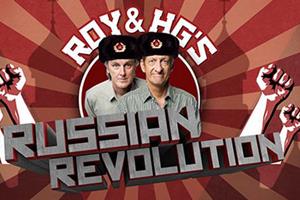"We Will Have Sex Now": Watching Olympics Coverage from Down Under

[Editor's note: Long-time close friend Jay Marmo, who recently moved to Australia, reports on watching Olympics coverage on TV there. "Like much of Australia," he writes, "the Olympics coverage here has been a refreshing change..." - DB]
By Jay Marmo
After recently moving to Australia from the U.S., I've been interested in seeing how the Australian media covers the Winter Olympics. The US coverage of the Olympics seemed to have degraded into selected event highlights, profile videos of key U.S. Olympians, never-ending commercial breaks, and little to no coverage of events in which the U.S. wasn’t likely to medal.
The format here in Australia is similar. A single Australian broadcaster (Channel Ten) holds the rights to the Winter Olympics, and combines live and replayed on-air coverage with web-based live and on-demand video. The coverage seems more extensive, with live coverage starting around 6 p.m. local time, and continuing until 6 a.m. “Encore” replays of the previous night’s broadcasts occur from 6 a.m. to 6:00 p.m. Thanks to the recent conversion to digital on-air TV, all Olympics coverage is in full HD.
The content is a little different than that of the U.S.: fewer commercials, almost no background canned pieces on the competitors, and long periods where they merely provide the feed from the competition, with some occasional commentary. They do not talk non-stop, and do include slow motion replays of the interesting stuff to help fill the time between races and other delays.
The Australian commentators seem relatively happy just to get their athletes into the finals – any medal is okay, but not required. They don’t discriminate against competitors from other countries so far as coverage time and interest, and they get excited about anything that is noteworthy, whether accomplished by the Aussies or not. They broadcast the entire list of finishers in each competition -- not just the medalists -- and tend to cover the entire qualification process and heats, not just the finals.
Perhaps this is because Australia has so few people (about 7 percent of the US population), and even less snow. The country still managed to field a team of 60, which included reigning world champions in several events. Their more balanced approach certainly isn’t due to a lack of competitiveness, as Australians can turn even surf lifesaving into a competition. I expect it is more their love of sport, and a true appreciation of the Olympic spirit, that has them providing such blanket coverage of the Winter Games.
 Australian humor is another prominent element in their coverage. Instead of watching Bob Costas decaying before your eyes while trying to say something interesting about the day’s events, Channel Ten has an Australian comedy team called Roy and HG, broadcasting in front of a small, live audience every evening. They are the stereotypical calm, know-it-all, former competitor and the loud, excitable sports commentator. They poke fun at the events themselves, the competitors, the host country and especially New Zealanders.
Australian humor is another prominent element in their coverage. Instead of watching Bob Costas decaying before your eyes while trying to say something interesting about the day’s events, Channel Ten has an Australian comedy team called Roy and HG, broadcasting in front of a small, live audience every evening. They are the stereotypical calm, know-it-all, former competitor and the loud, excitable sports commentator. They poke fun at the events themselves, the competitors, the host country and especially New Zealanders.
While some of the jokes may be lost on non-Australians, most of the banter is universally silly, smart and irreverent. Russian language lessons for phrases like “We will have sex now,” or discussions about the number of condoms distributed to the Australian team (and whether that will be enough), may not be your cup of tea, but I doubt that it's a brew of tea that would ever be served in the U.S. on prime time TV.
So, like much of Australia, the Olympics coverage here has been a refreshing change.
That being said, the Sochi Winter Olympics feel like more of a screw-up than most. Never before have I seen Olympic skiers having to slowly hike back up the hill to recover their skis after a fall, or lay face down in the crappy snow for minutes until someone decides they might be hurt and should check on them. I don’t remember seeing rain during competitions, or so little snow in general. The poor snow conditions clearly impacted some of the competitions, and perhaps the safety of the athletes, as well. We can blame it on global warming, but I think it’s more due to the marginal location that was selected.
At least the Russians got to reimagine their history during the opening ceremonies -- and they didn’t even need Roy and HG to help.